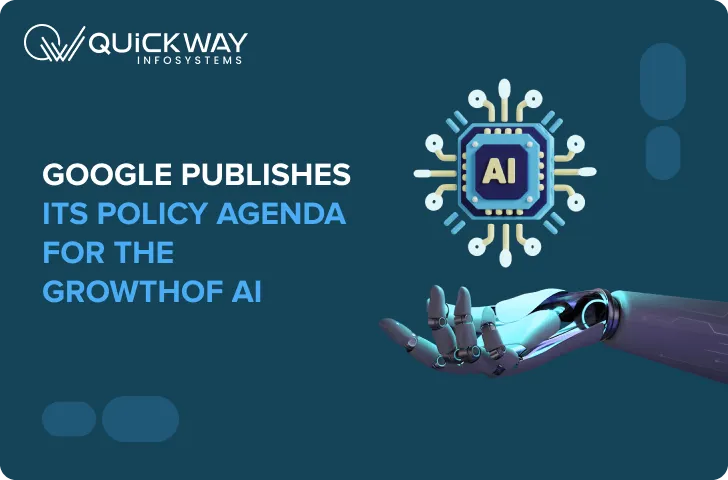In his recent address at Google I/O, Sundar Pichai emphasized that the growth of AI represents a monumental technological shift. Today’s AI models not only revolutionize the way we engage with information, language, and exploration but also pave the way for groundbreaking scientific and technological advancements. However, as we embrace this new era, it is essential to acknowledge the risks and challenges that accompany AI. In this blog post, we will explore the need for a shared agenda to responsibly harness the potential of AI and present policy recommendations in three key areas: unlocking opportunity, promoting responsibility, enhancing security, and ensuring ethical AI.
Unlocking Opportunity: Maximizing AI’s Economic Promise
To fully tap into AI’s economic potential, policymakers must invest in innovation, competitiveness, and supportive legal frameworks. Governments should prioritize foundational AI research, establish national labs and research institutions, and facilitate responsible AI development through privacy laws and trusted data flows across borders.
Additionally, fostering a vibrant ecosystem of AI startups and supporting small businesses using AI-powered products and services will encourage innovation and economic growth. Furthermore, preparing the workforce for AI-driven job transitions is crucial. Promoting continuing education, upskilling programs, talent mobility, and research on the future of work will help individuals adapt and thrive in the AI-powered economy.
Ready to kick start your new project? Get a free quote today.
Promoting Responsibility: Reducing Risks of Misuse
While AI holds immense promise for progress, responsible development and deployment are vital to avoid amplifying societal issues. Stakeholders must engage in a multi-stakeholder governance approach, drawing lessons from the internet’s evolution. Fundamental research, technical innovations (such as interpretability and watermarking), and common standards and best practices are necessary to manage the benefits and risks of AI effectively.
Proportional, risk-based regulations will ensure responsible development while fostering trust and confidence among businesses and consumers. Additionally, it is crucial to address issues of fairness, transparency, and accountability in AI systems to prevent bias, discrimination, and the misuse of personal data.
Enhancing Global Security: Safeguarding Against Malicious Exploitation
AI’s implications for global security necessitate measures to prevent malicious actors from exploiting the technology. Establishing technical and commercial guardrails is the first step, requiring collective efforts to address bad actors while maximizing the benefits of AI. Governments should explore next-generation trade control policies, targeting specific AI applications that pose security risks. Collaboration among governments, academia, civil society, and companies is crucial to understanding the implications of powerful AI systems and aligning them with human values. Joint research, data governance, and public-private forums for sharing information on AI security vulnerabilities are essential components of this collective effort. Furthermore, global cooperation and coordination are necessary to develop common policy approaches that reflect democratic values, prevent fragmentation, and address cross-border challenges posed by AI.
Ready to kick start your new project? Get a free quote today.
Ensuring Ethical AI: Empowering Human Values and Social Impact
As AI continues to advance, it is essential to ensure its development aligns with ethical considerations and societal values. Ethical AI frameworks should prioritize transparency, explainability, and accountability to ensure that AI systems are developed and deployed in ways that respect individual rights, privacy, and the well-being of society.
Additionally, an interdisciplinary collaboration involving ethicists, policymakers, technologists, and the public is necessary to address complex ethical dilemmas posed by AI, such as the impact on employment, social equality, and the potential for autonomous decision-making systems.
To achieve ethical AI, it is crucial to go beyond technical advancements and actively engage in empowering human values and promoting social impact. While transparency, explainability, and accountability are foundational pillars for ethical AI frameworks, they must be accompanied by a comprehensive understanding of the broader societal implications of AI.
Interdisciplinary collaboration becomes pivotal in navigating the complex ethical dilemmas arising from AI. The involvement of ethicists ensures a critical examination of the moral implications of AI systems and helps establish guidelines that align with ethical principles.
Policymakers play a vital role in shaping regulations and laws that govern AI development, deployment, and usage. Technologists contribute their expertise to designing AI systems that are ethically aligned, prioritizing fairness, inclusivity, and avoiding biases.
Ready to kick start your new project? Get a free quote today.
However, the participation of the wider public is equally essential. It is crucial to engage citizens in discussions about AI ethics, as they bear the consequences of AI systems in their everyday lives. Public input and feedback can help shape the development of AI technologies, ensuring that they align with societal values and meet the needs of diverse communities.
Ethical AI should also address concerns surrounding employment and social equality. While AI has the potential to automate tasks and improve efficiency, it may also disrupt job markets and exacerbate inequalities. Efforts should be made to re-skill and upskill individuals affected by these changes, ensuring a just transition and equitable distribution of benefits.
Furthermore, the potential for autonomous decision-making systems raises significant ethical challenges. It is crucial to establish mechanisms for accountability and oversight, ensuring that AI systems can be audited and held responsible for their actions. Openness and cooperation among organizations, along with external auditing and certification processes, can help foster trust in AI technologies.
Thus, ensuring ethical AI necessitates a holistic approach that values human rights, privacy, and societal well-being. By prioritizing transparency, explainability, and accountability, while fostering interdisciplinary collaboration and public engagement, we can build AI systems that are not only technologically advanced but also ethically responsible and socially beneficial.
Ready to kick start your new project? Get a free quote today.
Final Thoughts
Recognizing the potential challenges, it is crucial to implement a policy agenda centered on opportunity, responsibility, security, and ethical considerations to unlock the benefits of AI and ensure equitable distribution. Regulating AI is not only important but also necessary. Governments worldwide, such as Singapore, the UK, and the US, have made significant strides in establishing policy frameworks for AI.
It is encouraging to witness their commitment, and we are eager to support their efforts. By working together, we can navigate the future of AI responsibly, fostering innovation, social progress, and human well-being in an AI-driven world.



